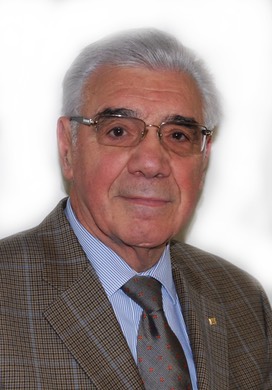
After a year of holding office as President of the IEEE Circuits and Systems (CAS) Society it is time to take a retrospective look at what was done, and based on that prepare plans for the second year of my term.
Every time I do a self-assessment I remember what my father used to say when I returned home from the University with excellent results: "That is part of your duty!" That was a truly unconventional way to congratulate me but because of this I think that that should be the attitude: to consider achievements as part of the duty when we wish to generate optimal results and, indeed, an optimal service is what my fellow CAS friends deserve.
My message of the last year outlined some points that I have tried to strictly follow. One of them: improve the quality of service, is probably the most important. It is a process whose results become evident in the long term but, I do hope, the beginning already shows the first sign of improvements.
With the leadership of the VP Conferences, Amara Amara, the Conference Division optimized the list of sponsored Conferences. The aim was to enhance the quality of papers and to ensure a profitable participation of CASS members.
In addition to restructuring the conference portfolio, however, it is necessary to account for a fundamental change that we are facing. Unfortunately, many university administrators don’t count conference papers for the academic career even if they are carefully peer-reviewed. This is not just negative for conferences that leads to a decrease of participants but, more importantly, it is negative because it favors the transmission of explicit (or written) knowledge and prevents the transmission of tacit knowledge. The tacit knowledge, essential for creativity, is difficult to transfer to another person by means of writing or even verbalizing. Skills, ideas, and experiences that people have in their minds are transferred with personal contact, interaction and trust. The particular contexts that favor the transmission of tacit knowledge are the social networks created by conferences. Thus, an important mission of future activity will be sustaining the social-scientific feature of events that the CAS Society organizes and sponsors.
Another task completed this year was renewing the CASS website. Updates are being made to continue enriching it with updated information. Chairs of Technical Committees are revising their sites to add fresh news.
Earlier this year I started a project of a book on the history of Circuits and Systems. The project involved about fifty colleagues and their enthusiastic response allowed in just a few months, even thanks to the fundamental contribution of Tony Davies, my co-editor, to produce A Short History of Circuits and Systems. The book has been gifted to participants of CAS events and is now available in the eBook format on the CASS website.
The continuing support to summer and seasonal schools determined a new added value: a CASS book series based on slides. The books will be made by two commented slides per page and will incorporate a short introduction of the speakers. The books will be available free-of-charge for the CASS Members on the new CASS Resource Center available next January.
The key responsibility of us, IEEE officers, is well expressed by the IEEE's tagline "Advancing Technology for Humanity" that means favor that kind of activity that brings wealth to people. Among other factors, favoring synergies between basic research and industry is essential. That led to launching a new initiative: the Industrial Distinguished Lecturer program (i-DLP), which aims at win-win collaborations between the CAS Society and industries in the circuits and systems area. Through this new program that operates in parallel to the well-established DLP program, a CAS Chapter can invite industrial lectures and benefit CAS support for the local organization. The program is already in place and few seminars have been organized.
All the above is obviously in addition to the extraordinary work of our VPs whose efforts kept high the level and the quality of services to our community.
After reporting on what was done this year it is worthy sharing with you some pondering elements that I consider important:
- Consulting scientific information through IEEE Xplore is more and more popular. This is good, but there are consequences. One, positive is that part of the revenue, based on the number of clicks for accessing papers of our magazines comes to the Society. Another, negative is that the motivation for being (or remaining) member of a society diminishes. This demands additional efforts for sustaining and enhancing the sense of belonging.
- The rules governing the IEEE activities are complicated with very limited flexibility. This protects (probably excessively) the Institute but is often an impediment to initiatives that benefit members. It will be good to revisit rules for a more effective support of volunteers.
- The voice of members naturally drives the Society officers but gradually fades when reaches the Division Director, the Board of Director, the President, and top staff levels. This growing gap between members and top management calls for a careful selection of candidates to be elected. Having a good number of candidates (in some cases nominated by petition) is the first step of a necessary revival of values.
I will continue working for you and I again solicit your feedback for better understanding what the CASS members desire.
Franco Maloberti
President, IEEE CAS Society (2016-2017)
__________
Note: This article also appeared in the IEEE CAS Magazine, first quarter issue of 2017.